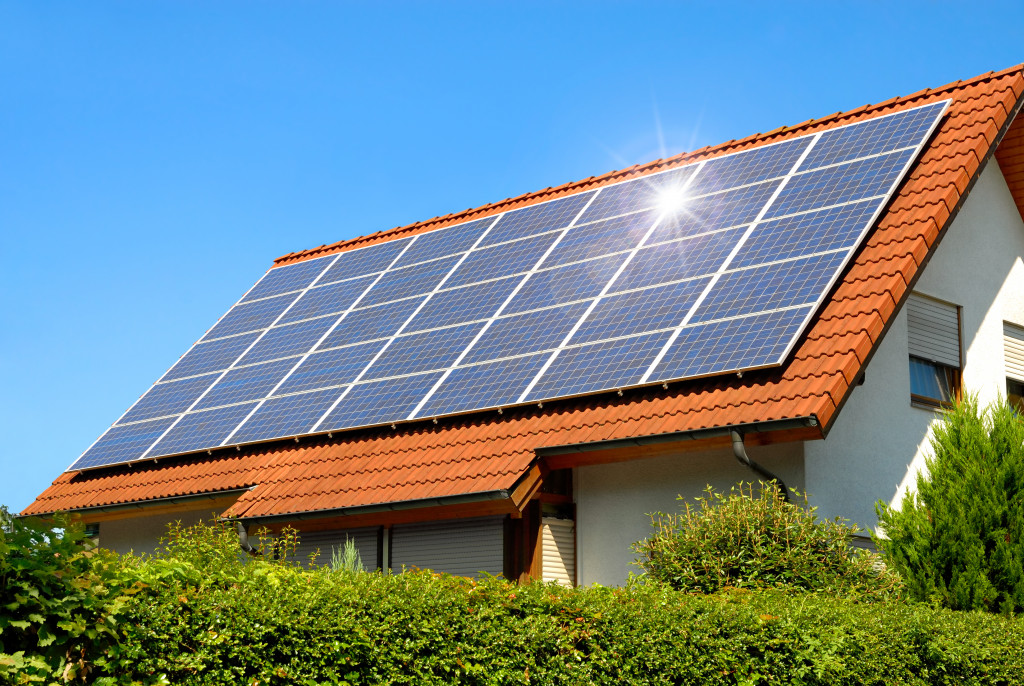- Evaluate your home or business’s solar energy potential by understanding the costs and benefits of switching to solar.
- Consider government subsidies for purchasing to maximize savings when switching to solar energy.
- Research local zoning regulations for a streamlined switch-over process and to ensure compliance with all requirements.
- Utilizing an experienced solar power plant consultancy service will provide an extensive analysis that compares costs and payback periods.
Switching to solar energy is becoming increasingly popular for those looking to reduce their electricity bills and lower their carbon footprint. But before making the switch, several essential factors should be considered. This article will discuss everything you need about switching to solar energy, from evaluating your solar energy potential to understanding government incentives and tax credits.
Evaluate your home or business’s solar energy potential.
Here are some tips on how to evaluate your home or business’s solar energy potential:
Understand the costs and benefits of switching to solar.

Switching to solar energy offers numerous benefits and can help you save much money in the long term. However, before making the switch, it is essential to understand the costs and benefits of utilizing solar.
The up-front cost of transitioning may seem daunting at first glance. Still, a reputable solar power plant consultancy service will be able to provide an extensive analysis that compares prices and payback periods for traditional energy sources versus utilizing solar.
While many people are inclined to purchase or install their solar energy system, consulting a reputable company is essential for helping them decide whether this shift makes sense for their budget over time.
Consider incentives and tax credits

Switching to solar energy is an intelligent and environmentally friendly decision. It is essential to consider all incentives and tax credits available for solar systems to maximize savings. Governments often offer attractive inducements such as reduced taxes, rebates on solar equipment, and other subsidies to encourage people to switch.
Researching what incentives are available in your area can help you identify opportunities to take advantage of, which could significantly reduce the upfront cost of switching to solar energy. Be sure to read through all regulations carefully before embarking on a solar project and take full advantage of tax credits offered by your government—it may be the boost you need to create a more sustainable future!
Compare multiple quotes for installation fees.
Comparing quotes from multiple installers is essential in switching to solar energy. It allows potential buyers to identify which installer will provide the best value for their particular project. Researching and reviewing all quotes carefully ensures that you will understand what services you are getting and get the best price when selecting an installer.
Additionally, ensure that any warranties and guarantees included with each offer are in writing, so should anything go wrong, you can refer back to what was agreed upon. Comparison shopping grants solar energy buyers a sense of security by allowing them to make informed decisions and avoid complicated situations down the line.
Research equipment selection, maintenance, and warranties
Researching equipment selection, maintenance, and warranties are essential for switching to solar energy. Rigorous research into various product features will ensure homeowners have reliable options that offer the best return on their investment.
When deciding on solar energy, homeowners should gather comprehensive information on manufacturer warranties and technical requirements to maintain design life expectancy. Working with a trusted installation company with experience in different equipment brands will help me gain insight into the right system for a particular location.
Decide between purchasing or leasing a system
Whether to purchase or lease a solar energy system is important, as either can come with certain financial and environmental benefits. When considering whether to buy or lease, it is important to weigh the cost savings of owning the system; financial incentives such as government subsidies for purchasing may be beneficial; the amount of usage over time; how changes in property ownership could affect the solar investment; and repair costs associated with either service.
Purchasing can be a great way for homeowners to reach financial stability through reduced electricity bills and ensuring that total returns are maximized. At the same time, leasing solar systems may be better for other households when taking advantage of flexible payment plans and without having to worry about maintenance needs in the long run.
Review local zoning regulations
Switching to solar energy is becoming increasingly popular as homeowners recognize the many benefits of transitioning to renewable energy sources. To properly initiate the process of switching over, one must carefully review any local zoning regulations that may be relevant. Doing so allows for a streamlined switch-over process and can help save significant amounts of time and effort.
Knowing which zoning regulations are applicable early on allows you to better consider where the solar array will be installed, the amount of shade cast by nearby trees, how close it is to other buildings, and so on. Additionally, understanding local zoning regulations can give you peace of mind that you comply with all requirements, thereby avoiding any potential fines or complications.
These are the essential considerations when switching to solar energy. With proper research and due diligence, you can make an informed decision about transitioning to a more sustainable energy source that saves money in the long term.
